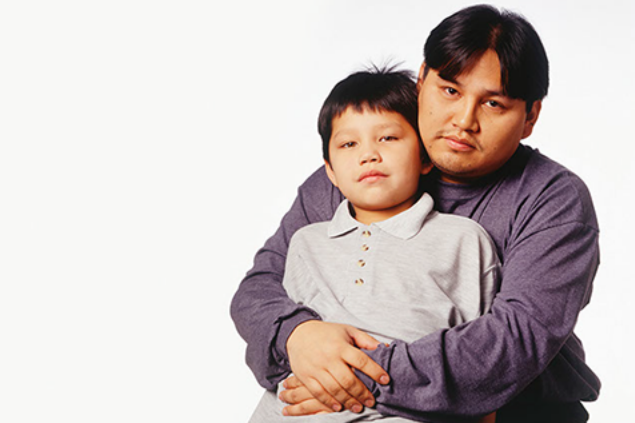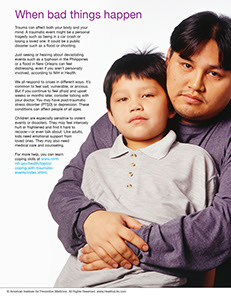SYMPTOM CHECKER
CONDITIONS
Male
Female
Child
Arm, Hand & Shoulder Concerns
Legs & Feet Concerns
Dental & Mouth Concerns
Ear & Nose
Eye Conditions
Head Conditions
Arm, Hand & Shoulder Concerns
Legs & Feet Concerns
Front
Back
Arm, Hand & Shoulder Concerns
Dental & Mouth Concerns
Ear & Nose
Eye Conditions
Head Conditions
Arm, Hand & Shoulder Concerns
Dental & Mouth Concerns
Ear & Nose
Eye Conditions
Head Conditions
Front
Back
Arm, Hand & Shoulder Concerns
Neck Links
Head & Neck Concerns
Arm, Hand & Shoulder Concerns
Neck Links
Head & Neck Concerns
Front
Back
Online Clinic
Wise Healthcare
When bad things happen

Print on Demand
Trauma can affect both your body and your mind. A traumatic event might be a personal tragedy such as being in a car crash or losing a loved one. It could be a public disaster such as a flood or shooting.
Just seeing or hearing about devastating events such as a typhoon in the Philippines or a flood in New Orleans can feel distressing, even if you aren’t personally involved, according to NIH in Health.
We all respond to crises in different ways. It’s common to feel sad, vulnerable, or anxious. But if you continue to feel afraid and upset weeks or months later, consider talking with your doctor. You may have post-traumatic stress disorder (PTSD) or depression. These conditions can affect people of all ages.
Children are especially sensitive to violent events or disasters. They may feel intensely hurt or frightened and find it hard to recover—or even talk about. Like adults, kids need emotional support from loved ones. They may also need medical care and counseling.
For more help, you can learn coping skills at www.nimh.nih.gov/health/topics/coping-with-traumatic-events/index.shtml.
This website is not meant to substitute for expert medical advice or treatment. Follow your doctor’s or health care provider’s advice if it differs from what is given in this guide.
The American Institute for Preventive Medicine (AIPM) is not responsible for the availability or content of external sites, nor does AIPM endorse them. Also, it is the responsibility of the user to examine the copyright and licensing restrictions of external pages and to secure all necessary permission.
The content on this website is proprietary. You may not modify, copy, reproduce, republish, upload, post, transmit, or distribute, in any manner, the material on the website without the written permission of AIPM.
2021 © American Institute for Preventive Medicine - All Rights Reserved. Disclaimer | www.HealthyLife.com















































